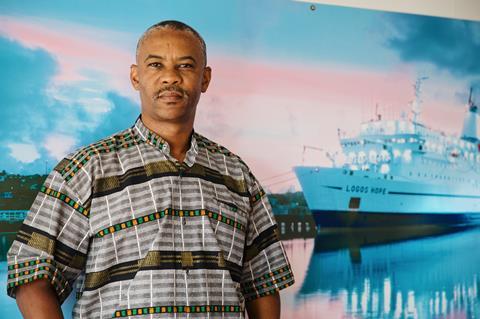African missionaries are challenging the modern missionary mindset, says Operation Mobilisation’s Reinhold Titus

Churches, mission agencies and the modern missionary movement have been used greatly by God to expand his kingdom and fulfil the great commission. They have reached new generations across the world with the good news, planted churches among the least-reached indigenous groups, and helped support local communities by providing education, healthcare, and aid.
But what churches and mission agencies should consider is engaging with communities in a way that demonstrates that they understand the fullness of the Kingdom of God. That is, seeking transformation in all areas of society. For example, missions have rarely engaged in business, despite benefiting from it, and most are not equipped to speak into these areas.
The result is a narrow understanding of what it means to be both a church and a missionary, and a reduced ability to impact culture for the gospel.
In my conversations with African pastors, I’ve discovered that many thought that expanding the Kingdom of God meant building the Church, rather than participating in seeing the kingdom come on earth as it is in heaven – as Jesus prayed.
African leaders have shaped global theology throughout history
Part of the problem is that many people in Africa see Christianity as an imported religion, rather than as a continent that has always been a part of God’s story. When I ask pastors at Christian leadership conferences how many references to Africa or Africans they can recall in the Bible, most can count them on their fingers, when in fact there are over 1,000.
African pastors are often blown away when they discover that African leaders have played a key role in shaping global theology throughout church history. It was Saint Augustine, one of the early church fathers, who first coined the term ‘Trinity’, and he was from North Africa. The same is true of mission history as well, as most biographies were written by missionaries who went to Africa. African mission stories are not told, but they should be.
An African man moved to the United States ten years ago to plant a church. He ventured into the corporate world, eventually becoming the small business administrator in the city. He was instrumental in launching a city transformation movement involving 100 churches was eventually elected the mayor of the city. The leader of a global mission agency happened to live in the same city and said, “It’s amazing to think that one of Africa’s sons - who loves Jesus greatly - is now strategically positioned as mayor to influence the flourishing of my city and serve as an example across the nation”. This is just one example of how God is using African missionaries today.
Using the words ‘mission’ and ‘missionary’ can be very problematic today because of their historical associations with slavery, colonialism, and the idea that you can only be a missionary if you are sent overseas by a church network or mission organisation. If being part of a mission agency was a prerequisite for mission work, then 99% of Africans would feel like they could not be missionaries.
God can and is working through the African diaspora in the UK, using their skills and experience to help bring about his kingdom and the transformation of UK society. Do we see them as participants in God’s mission?
OM empowers pastors and Christians to bring about the Kingdom of God in their nation, encouraging them to integrate their faith in everyday life and impact the culture with their beliefs. For more information visit uk.om.org
Interested in world mission? Listen to Babel Undone, a new podcast to help Christians around the world learn from one other


































No comments yet